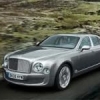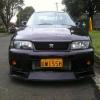Top 5 Gtr Times-what Ecu Are Bieng Used
Announcements
-
Similar Content
-
Latest Posts
-
I'm looking for an R34 Gtr getrag 6 speed gearbox to upgrade my R33. Gearbox should work, preferably complete with shaft. Thank you! Shipping to Germany is necessary!!
-
By Murray_Calavera · Posted
Based on this - and this - My advise is to find a local workshop that is trustworthy and has experience building GTRs to the level you want to achieve. -
By Murray_Calavera · Posted
I have questions - * what are you using to detect knock? * do you have knock ears or any other way to listen to knock? * your driving a R33 yeah? what are the knock sensors your running, factory is the old school style yeah? Do you have modern bosch knock sensors? * have you deliberately induced knock to see what it looks like on your ECU/knock monitor and listened to it to hear what it sounds like? -
By Dose Pipe Sutututu · Posted
I will need to dig up Nistune maps and see how they look. -
You will also need bigger injectors. your factory clutch will be living on borrowed time. welcome to the rabbit hole that it skyline ownership
-







Recommended Posts
Create an account or sign in to comment
You need to be a member in order to leave a comment
Create an account
Sign up for a new account in our community. It's easy!
Register a new accountSign in
Already have an account? Sign in here.
Sign In Now